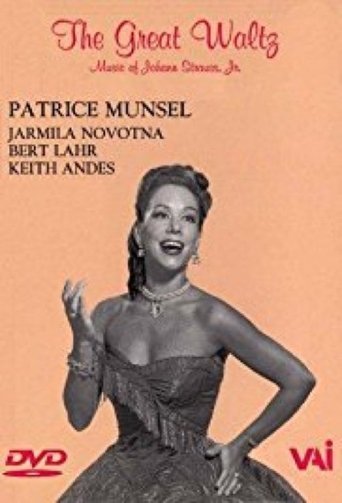
04 Nov 1955

The Great Waltz
Johann Strauss, Jr., a would-be composer of waltzes in mid-19th Century Vienna, attempts to thwart his father's efforts to prevent his success when the older man becomes jealous of his melodic skill.
Miller’s daughter Zuzanka Vojířová, betrothed to Ondřej Zachar, hesitates before marriage when Lord Peter Vok of Rožmberk invites her to his castle. There she bears his son Petříček, but his wife hides the child. After Vok’s death in battle, Zuzanka is expelled and lives as a beggar, reunited with her son and former fiancé, finding solace in the continuation of the Rožmberk lineage.

Zuzana Vojířová
Zuzana Vojířová (singing voice)

Petr Vok
Petr Vok (singing voice)

Kateřina
Kateřina (singing voice)

Ondřej Zachar
Ondřej Zachar (singing voice)

Grandma
Grandma (singing voice)
Adam z Hradce
Adam z Hradce (singing voice)
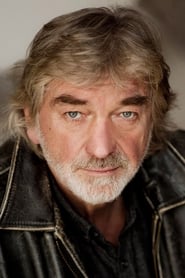
Tomáš Roh
Tomáš Roh (singing voice)

Markyta
Markyta (singing voice)

Bětka
Bětka (singing voice)

Věrník
Věrník (singing voice)

04 Nov 1955

Johann Strauss, Jr., a would-be composer of waltzes in mid-19th Century Vienna, attempts to thwart his father's efforts to prevent his success when the older man becomes jealous of his melodic skill.

27 Apr 2021

Francesco Cilea's Adriana Lecouvreur was inspired by the real-life story of a celebrated actress at the Comédie-Française who was much admired by Voltaire. Hailed as a masterpiece, the opera was triumphantly staged in cities around the world after its premiere in 1902. The dramatically effective narrative is a passionate love triangle filled with intrigue and complicated plot twists set in the gallant 18th century. Its subtle ironies and gorgeous cantabile style of music provide a perfect vehicle for the star cast in this stunning production from the Teatro del Maggio Musicale Fiorentino.
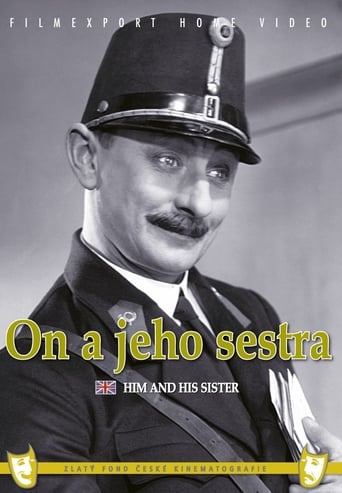
03 Apr 1931

Postman Brabec is a welcome guest of the revue theatre for his sense of humor, and he brings his director Holt letters from female admirers every day. Holt's fans include Brabec's sister Anny. The girl would like to join the theatre, but for the time being works as a maid for the actress Velden. A new revue is being rehearsed, the name of the author is secret. Veldenová will return the role just before the premiere because she doesn't like it. The quick-witted Brabec introduces the director to his sister, who knows all the parts by heart.
15 May 1948
An anthology of four abbreviated operas: "William Tell" by Rossini, "The Marriage of Figaro" by Mozart, "Don Pasquale" by Donizetti, and "Carmen" by Bizet. Filmed in Italy with major opera stars, and accompanied by English narration.
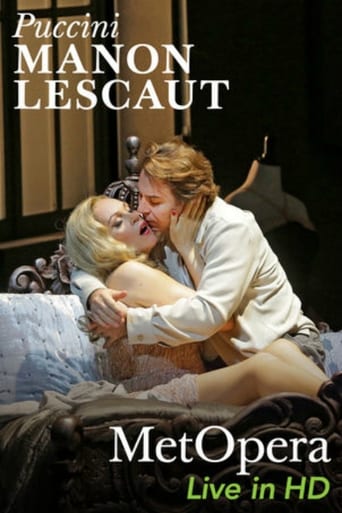
05 Mar 2016

Kristine Opolais is the young woman whose conflicting desires for love and luxury lead to her tragic end, and Roberto Alagna plays the man who falls for her in Puccini’s early hit. Richard Eyre’s elegant production, which sets the action in 1940s occupied France, was one of the highlights of the Met’s 2015–16 season. Massimo Cavalletti as Manon’s brother and Brindley Sherratt as her aging admirer co-star, and Principal Conductor Fabio Luisi is on the podium.
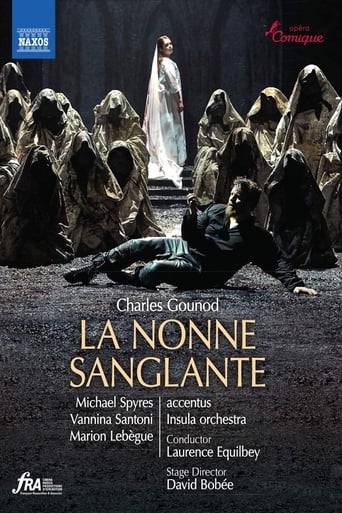
04 Sep 2019

This Blu-ray is a splendid record of a creative production with terrific voices and direction, as good as the Met's videos any day. It also tends to be creepy and atmospheric, with music as good as anything Gounod wrote for his FAUST. Recommended to lovers of horror and opera!

07 Nov 2012

This thought-provoking, modern-day interpretation of Rossini's 'Mosè in Egitto' sets the scene for superior music-making at the prestigious Rossini Festival in Pesaro. For conductor Roberto Abbado, the transposition of the action to the present day releases the energy of Rossini's music. At his disposal is a cast of top-quality vocalists such as the “refined bel canto artist(Bresciaoggi) Sonia Ganassi as Elcia, and the “outstanding” Dmitry Korchak as the Pharaoh's son, two lovers fatefully drawn into the political turmoil and catastrophes of their time. Also among the protagonists are the “thoroughly brilliant” (DeutschlandRadio Kultur) baritone Alex Esposito as Faraone and, in his Rossini Festival debut, young, full-bodied bass Riccardo Zanellato as Moses. Conductor Roberto Abbado “inspired his musicians to deliver a spectacular performance” (Salzburger Nachrichten).
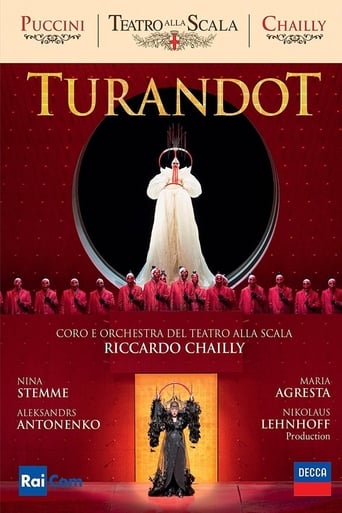
01 May 2015

Visually this is a gripping production which captures the drama of this opera perfectly. It's downright exciting! and I found the singing, acting, and orchestral playing reasonably fine. I found only one major problem with it, a problem that kept Puccini for quite a few years. Turandot has been looking for an opportunity to kill Calif and Calif has singlemindedly tried to get Turandot to love and wed him focusing on her and ignoring a better looking girl who loves him truly. The problem is how to get the audience to applaud the match once Calif gets his wish. Puccini couldn't figure out how to do it. The traditional quick ending doesn't do it, and Berio's attempt is longer , tries its best, but ends up making it plain this is one wierd couple.

05 Nov 2005

The production was the Vienna State Opera debut for the young Swiss conductor Philippe Jordan – the Argentinian tenor Marcelo Álvarez, took the title role. His Charlotte on this occasion was the young Latvian mezzo-soprano Elīna Garanča. Her performances have been enthusiastically received and she has already been labelled as the new mezzo wonder. Staged by internationally sought-after Rumanian director, Andrei Serban, the apparently sentimental love story – normally presented in 18th century period costumes - reveals a study of personal relationships and a close observation of a woman, who comes of age too late. Serban’s aim was to rid the opera of the unjustified reputation of banality that clings to it despite its underlying tragic mood. By setting the production in the stiff, claustrophobic atmosphere of a small town in the 1950s, he aimed to make the audience more aware of its deeper levels of self-denial.

26 Feb 2014

Emmanuelle Haïm has established herself as one of the world’s leading performers, conductors and interpreters of Baroque repertoire, not only with Le Concert d’Astrée, the ensemble she founded in 2000, but with several of the world’s greatest orchestras. Known for her fresh and expressive approach to Baroque music, she has garnered critical acclaim and several international awards with her own ensemble, including Victoires de la Musique Classique, ECHOs, Gramophone Awards, and Grammy nominations.

29 Jun 1925

The deformed Phantom who haunts the Paris Opera House causes murder and mayhem in an attempt to make the woman he loves a star.
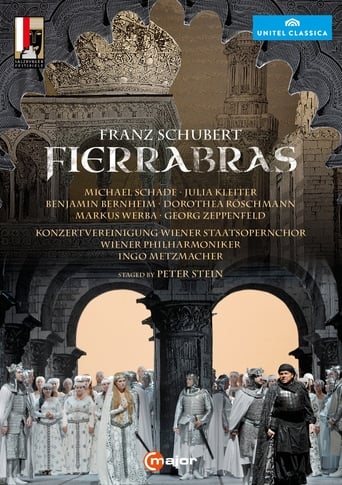
01 Jun 2015

Fierrabras of 1823 is the last of Franz Schubert’s stage works. Rarely performed to this day, this heroic-romantic opera has now been staged for the first time ever at the Salzburg Festival by famous director Peter Stein. Based on an old French 12th-century epic, the plot depicts the military conflict between Christians and Moors at the time of Charlemagne – as a backdrop to stories of love and friendship that prove to be stronger than war and hatred of otherness. The strong cast includes the “marvellously expressive miracle Dorothea Röschmann” (Die Zeit) and “Michael Schade, who exudes his exceptional tenor in Fierrabras’s heroic arias” (Der neue Merker). Under the energetic baton of lngo Metzmacher, the Vienna Philharmonic unfold “the melos, the poetry, the sweetness and the dramatic force of Schubert’s highly refined and atmospheric sound worlds” (Kleine Zeitung) in highly romantic fashion.
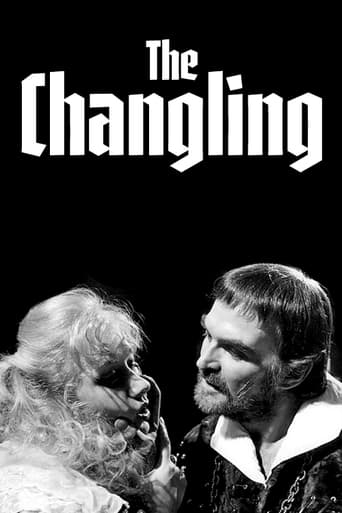
20 Jan 1974

Sexual passion breeds violence in the Thomas Middleton and William Rowley written tale of a beautiful woman who falls in love with a sea-captain. Filmed with lush production values and at a leisurely, very British pace, Helen Mirren is riveting as Beatrice-Joanna, a young lass already torn by love and commitment.Beatrice-Joanna (Helen Mirren) is betrothed to Lord Alonzo de Piraquo (Malcolm Reynolds) but is in love with Alsemero (Brian Cox). She hires her father's manservant, De Flores (Stanley Baker), to kill Alonzo but after he has done so, she realises De Flores wants her as a reward.The Changeling was an instalment of the BBC's Play of the Month series and is a production for television of a 1622 Jacobean tragedy of the same name, written by Thomas Middleton and William Rowley.

03 Apr 2015

Originally commissioned to celebrate the completion of the Suez Canal and the opening of Cairos new opera house, Verdis Egyptian epic Aida is here seen in a spectacular new staging in the Teatro Regio Torino by the Oscar-winning American film director William Friedkin, creator of such famous movies as The Exorcist and The French Connection. The cast features American soprano Kristin Lewis who has been heralded for her remarkable voice, which she uses with powerful dramatic instinct, and Georgian mezzo-soprano Anita Rachvelishvili, whose Amneris dominates the stage with her dark, rounded, irresistible voice and extraordinary stage presence. Gianandrea Noseda leading the Orchestra and Chorus Teatro Regio Torino received accolaides from all: he controls everything- orchestra, singers, chorus, dancers, acrobats- with an all-encompassing overview. He knows exactly when its time to linger over a timbre, a color, an expressive chord.
07 Nov 1974
No overview found
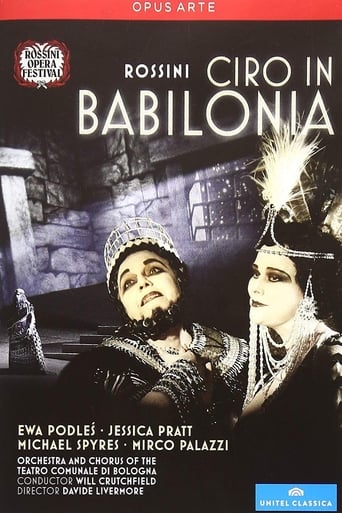
19 Jul 2012

The Biblical story of Belshazzar's hubristic arrogance, set against the valour of the young warrrior-leader Cyrus, provided the 20-year-old Rossini with a dramatic story enriched by West-Eastern implications which still speak to us today. For the title role of Cyrus, Rossini wrote what would be his longest-ever contralto role, to which the great Rossini singer Ewa Podles´ is both naturally attracted and ideally suited. She is partnered by two young stars of Rossini singing, Jessica Pratt and Michael Spyres, and a conductor-scholar, Will Crutchfield, of great experience and sympathy. Filmed in High Definition and recorded in true Surround Sound.

25 Jul 2008

I usually don't like classic operas with modernized production and costumes. This one is an exception. The modernized twist is made to fit the story very well and makes watching this opera very enjoyable. Alagna as Orphee does a great job and and is more realistic than a female singer in the role. His impeccable french is an added bonus for french speakers like me. This is the version of this opera that you would want to watch without getting bored

05 Nov 2013

The grand scale and magnificent acoustics of the Roman arena in Verona are ideally suited to the pageantry of Verdi's Egyptian opera, presented here in a staging that is true to the original 1913 production, framed by obelisks and sphinxes and filled with chorus and dancers. Chinese soprano Hui He has won international acclaim for her portrayal of the eponymous slave girl whose forbidden love for the war hero Radamés (Marco Berti, the experienced Verdi tenor) brings death to them both.
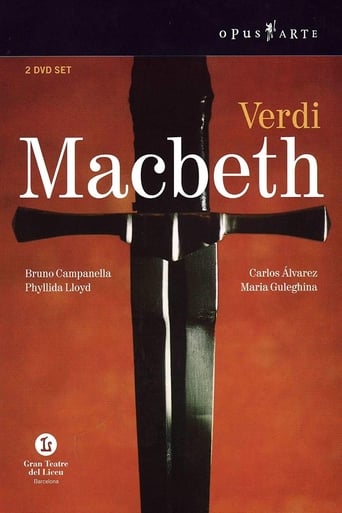
01 Jan 2004

Carlos Álvarez takes the title role in the first of Verdi's Shakespearean operas, with Maria Guleghina as the manipulative wife whose desire to gain the Scottish throne drives her husband to murder and leaves both with blood on their hands. Bruno Campanella conducts the Symphony Orchestra and Chorus of the Gran Teatre del Liceu in the 2004 recording of Phyllida Lloyd's powerful production, first staged at London's Royal Opera House.
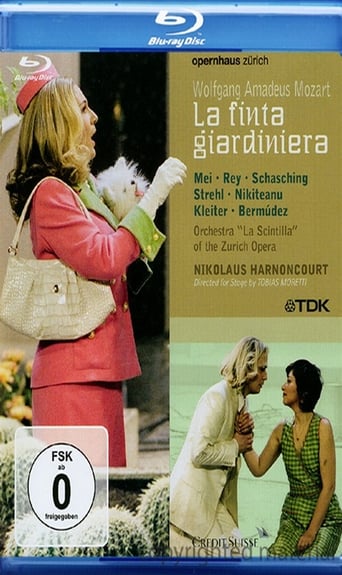
01 Jan 2006

The Zurich Opera gathered a superb cast for this production: Italian soprano Eva Mei sings the Countess Violante, known as Sandrina, the feigned gardener of the title. Spanish soprano Isabel Rey is her opponent Arminda, and Arminda's former lover, the melancholy Cavaliere Ramiro, is sung by Romanian mezzo Liliana Nikiteanu. Moretti's staging presents the action in a modern villa in a hierarchical world of the rich and famous.